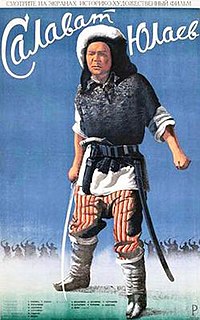Irina Fedotova may refer to:
- Irina Fedotova (rower), Russian Olympic athlete
- Irina Fedotova (activist), Russian human rights activist
Irina Fedotova may refer to:
Alyona is a Russian female given name derived from the Ancient Greek name Ἑλένη, Helenē. It can also be the short form of Yelena. Its colloquial forms are Alena, and Olena (Олёна). It can also be transliterated as "Aliona." Other variants include Helena and Helen. Notable people include:
Fedotov (Федотов) or Fedotova (feminine) is a common Russian last name from the given name Fedot, borrowed from Greek: Θεόδοτος "given by God". Belarusian form is Фядотаў. It may refer to the following people:
Yusupov or Yusupova is a Chechen, Tatar and Uzbek surname, which is common in the countries of the former Soviet Union. It may refer to:
Tkachuk, Tkaczuk, or Tkatchuk is a common Ukrainian surname in Ukraine and the Ukrainian diaspora. The name in Ukrainian stands for the name of occupation, weaver. The names that end in -chuk or -czuk are of the western Ukrainian origin. Notable people with the surname include:

Irina Valeryevna Shaykhlislamova, known professionally as Irina Shayk, is a Russian model who received international recognition when she appeared as the first Russian model on the cover of the 2011 Sports Illustrated Swimsuit Issue. Models.com ranks her as an "Industry Icon".
Irina is a feminine given name of Ancient Greek origin, commonly borne by followers of the Eastern Orthodox Church. It is derived from Eirene, an ancient Greek goddess, personification of peace.

The Russia women's national water polo team represents Russia in international women's water polo competitions and friendly matches. The team is one of the leading teams in Europe since the mid-1990s.
Sergeyeva, Sergeeva or Sergejeva is a common Russian female surname, which may refer to
Russia recognizes neither same-sex marriage nor any other form of civil union for same-sex couples. Russian laws stipulate several provisions which prevent the recognition of legal foreign marriages in Russia and a marriage entered into by two persons of the same sex is not one of them. In the 2021 case Fedotova and Others v. Russia, the European Court of Human Rights ruled that it was a violation of human rights for Russia not to offer any form of legal recognition to same-sex relationships.
Irina Mikhaylovna Fedotova (Russian: Ирина Михайловна Федотова, is a Russian rower who competed for the Russia in the three Summer Olympics.

Salavat Yulayev is a 1940 Soviet film directed by Yakov Protazanov, about Bashkir national hero, poet Salawat Yulayev (1754-1800) and Pugachev's Rebellion.

Russia competed at the 2011 World Aquatics Championships in Shanghai, China between July 16 and 31, 2011.
Irina Fedorova may refer to:

Nadezhda Sergeyevna Glyzina is a Russian female water polo player. She was a member of the Russia women's national water polo team, playing as a driver. She was a part of the team at the 2008 Summer Olympics, 2012 Summer Olympics and 2016 Summer Olympics. On club level she played for Kinef Kirishi in Russia.
Antonenko or Antonenka is a gender-neutral Ukrainian surname that may refer to
Micromyinae is a subfamily of wood midges, insects in the family Cecidomyiidae. Its members were formerly included in subfamily Lestremiinae. There are at least 40 genera and more than 500 described species in Micromyinae.
Yakov Sverdlov', is a 1940 Soviet drama film directed by Sergei Yutkevich.
How the Steel Was Tempered is a 1942 Soviet drama film directed by Mark Donskoy.

Irina Fedotova is a Russian LGBT and human rights activist. She filed the case Fedotova v. Russia (1932/2010) with the United Nations Human Rights Committee to challenge the gay propaganda law in Ryazan and also the case Fedotova and Others v. Russia with the European Court of Human Rights, which ruled in 2021 that Russia had violated her rights by failing to provide any recognition to her same-sex relationship.
Fedotova and Others v. Russia was a case submitted by six Russian nationals to the European Court of Human Rights (ECtHR). It was decided on 13 July 2021 in which the Third Chamber ruled unanimously that Russia's refusal to provide any legal recognition to same-sex couples violated the applicants' human rights under Article 8 of the European Convention on Human Rights. The court rejected Russia's argument that most Russians disapproved of same-sex marriage, finding that "access to rights for a minority could not be dependent on the acceptance of the majority".